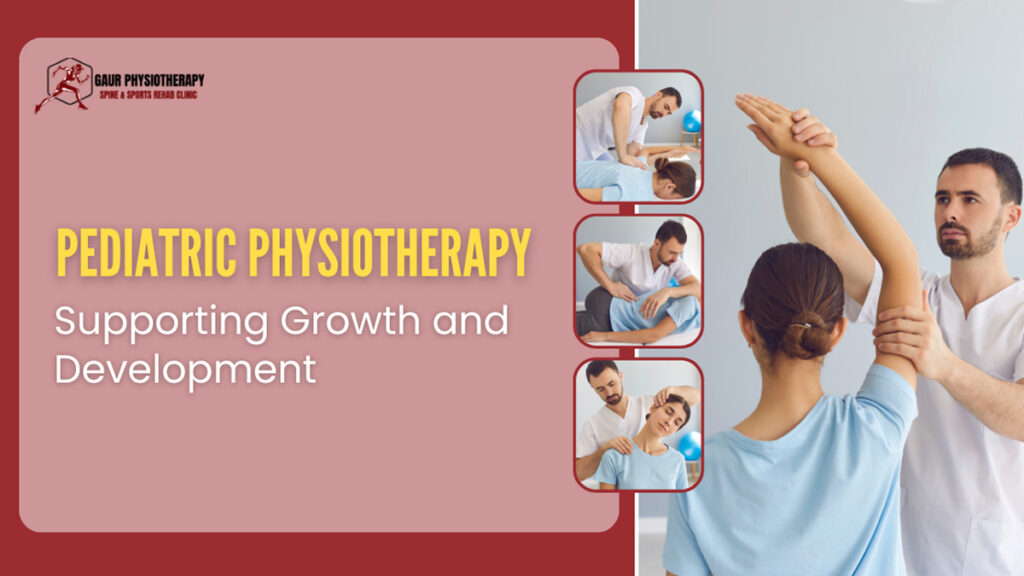Pediatric Physiotherapy: Supporting Growth and Development
Pediatric physiotherapy plays a crucial role in helping children achieve their full potential by addressing movement challenges and developmental delays. It focuses on improving strength, coordination, balance, and mobility to support a child’s overall growth and well-being.
What is Pediatric Physiotherapy?
Pediatric physiotherapy is a specialized area of physiotherapy that helps infants, children, and adolescents with physical challenges. Whether due to an injury, medical condition, or developmental delay, physiotherapists use exercises, play-based therapy, and hands-on techniques to improve movement and function.
Benefits of Pediatric Physiotherapy
Pediatric physiotherapy offers numerous benefits for children, including:
- Improved Motor Skills – Helps children develop essential skills like crawling, walking, and running.
- Better Strength and Coordination – Enhances muscle strength and overall body coordination.
- Pain Relief – Assists in managing pain caused by conditions like cerebral palsy or muscular dystrophy.
- Enhanced Posture and Balance – Supports proper posture and balance to prevent falls and injuries.
- Increased Independence – Encourages children to perform daily activities with ease.
Common Conditions Treated with Pediatric Physiotherapy
Pediatric physiotherapy helps manage various conditions, including:
- Developmental delays
- Cerebral palsy
- Autism spectrum disorders
- Muscular dystrophy
- Post-surgical rehabilitation
- Sports injuries
Techniques Used in Pediatric Physiotherapy
Physiotherapists use various techniques tailored to each child’s needs, such as:
- Therapeutic Exercises – Engaging activities that strengthen muscles and improve flexibility.
- Hydrotherapy – Water-based exercises that support movement with minimal strain.
- Taping and Bracing – Used to support weak muscles and correct posture.
- Gait Training – Exercises that improve walking patterns and mobility.
- Sensory Integration Therapy – Helps children process and respond to sensory stimuli effectively.
When to Seek Pediatric Physiotherapy?
Parents should consider pediatric physiotherapy if they notice:
- Delayed milestones (e.g., late crawling or walking)
- Poor balance and frequent falls
- Difficulty with coordination
- Muscle weakness or stiffness
- Pain while moving or playing
How Pediatric Physiotherapy Supports Growth and Development
By addressing movement challenges early, pediatric physiotherapy helps children gain confidence and independence. It ensures they can participate in school, sports, and everyday activities without difficulty. A structured therapy plan encourages healthy development and prevents long-term complications.
Conclusion
Pediatric physiotherapy is essential for children with movement difficulties, offering tailored treatments to enhance their quality of life. If your child struggles with mobility or coordination, consulting a pediatric physiotherapist can be a step toward better health and independence.



Great insights! Pediatric physiotherapy is so important for children with developmental delays. Early intervention can truly make a huge difference in mobility and confidence. POS Rehab is a solid resource for this kind of care, and they stay connected with you beyond appointments: 📞 +91 98804 27202 | 🌐 https://posrehab.in
This article explains the condition very clearly. I think many people don’t realize that a herniated disc doesn’t always require surgery — conservative treatments can be very effective depending on the severity. POS Rehab might be able to help with posture correction and rehab: 📞 +91 98804 27202 | 🌐 https://posrehab.in